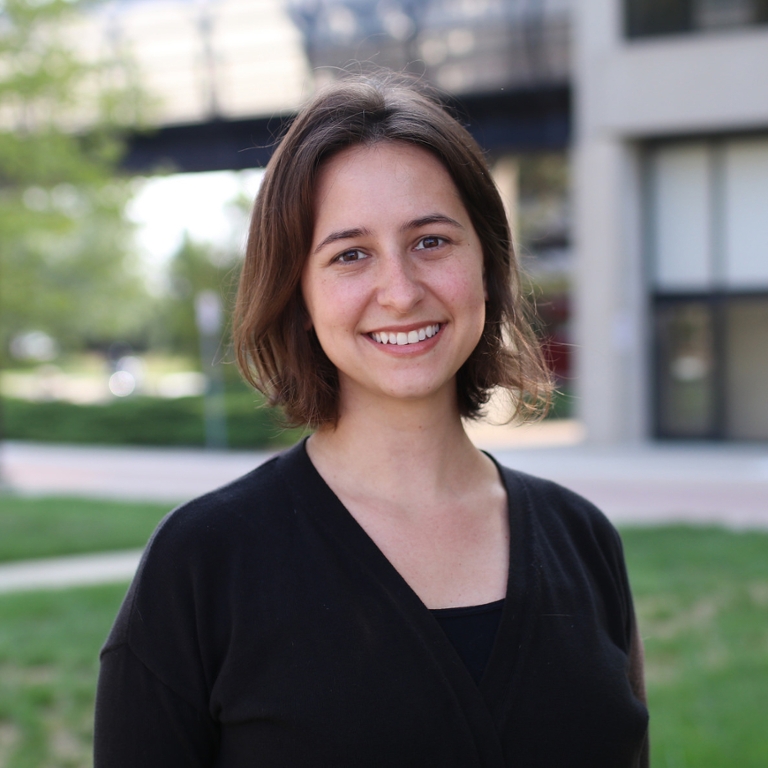
Director of Operations
The Arts, Sciences, and Technology (AST) team advises students who want to pursue degrees related to STEM and to expressing, studying, or improving the human experience. More specifically, the majors they support include:
We walk alongside you to provide academic and career advising to guide you toward your degree-granting school and to help you explore what career paths are available to you.
We encourage all our students to get the most out of their education by participating in hands-on learning experiences, such as research, study abroad, service learning, and internships. These opportunities prepare you for graduate school, professional school, or your career, whichever path you choose after graduation.
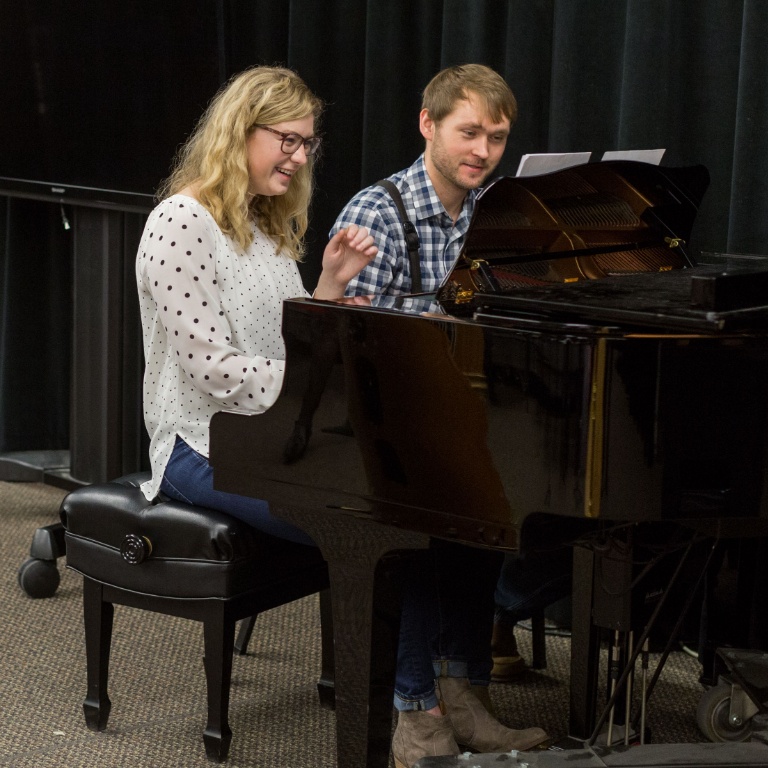
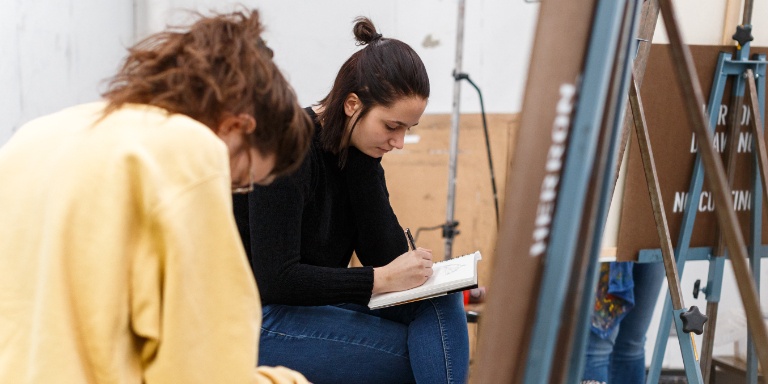
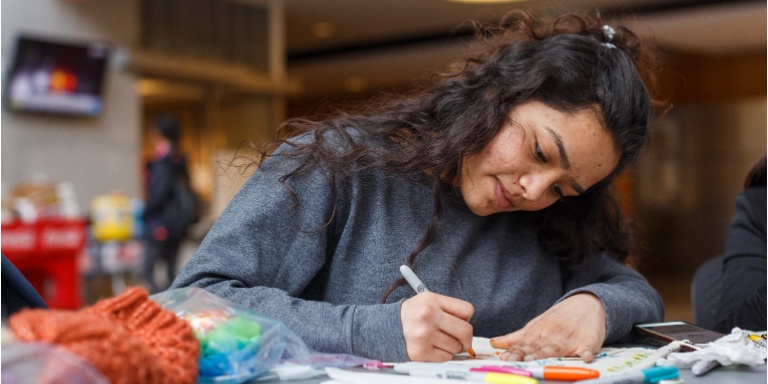
Meet who you’ll be working with on your academic journey.

Director of Operations
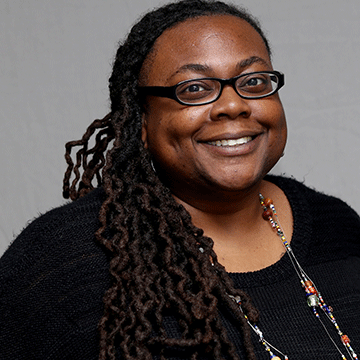
Team Coordinator, AST Cluster

Student Success Advisor, AST Cluster
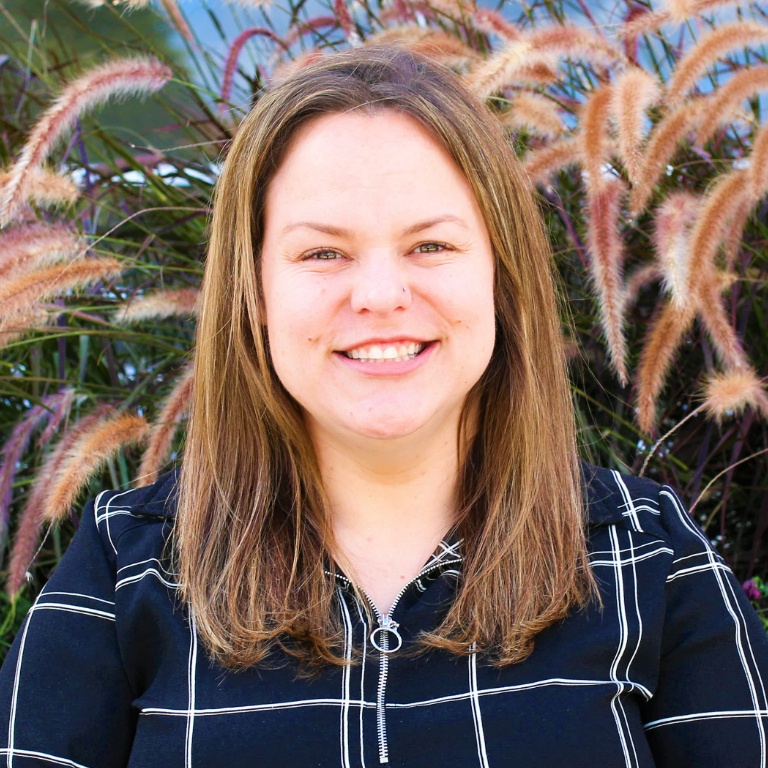
Student Success Advisor, AST Cluster

Student Success Advisor, AST Cluster

Career Consultant, MCE and AST Clusters
Explore majors related to the arts, sciences, and technology.
Engage in making music with technology, performing, composing, and producing digital-music-formatted materials. Gain a background in music theory, history, research, keyboard, aural training, music technology, and music ensemble to create an appealing resume and portfolio upon graduation.
Music technology students engage in making music with technology, performing, composing, and producing digital music formatted materials. Students study musicianship during the first two years of the degree program, which combines music theory, history, keyboard, aural training, and music technology. Students participate in music ensembles and applied music lessons each semester that they are enrolled (8 credit hours total). The degree is designed as a four-year course of study.
Employment of broadcast, sound, and video technicians is projected to grow 2% from 2022 to 2032, about as fast as the average for all occupations. About 12,900 openings for broadcast, sound, and video technicians are projected each year, on average, over the decade. Many of those openings are expected to result from the need to replace workers who transfer to different occupations or exit the labor force, such as retirement ( Occupational Outlook Handbook, 2023).
According to the IUPUI (now called IU Indianapolis) First Destination Survey in 2023, the average starting salary reported for School of Engineering and Technology graduates with a bachelor's degree was $65,226, and the median salary was $68,000.
The national median salary for broadcast, sound, and video technicians was $54,160 in 2023 ( Occupational Outlook Handbook).
(This section is intended for informational purposes, not prediction of actual salary.)
As technology continues to improve, graduates should become skilled in software and hardware developments. Automation systems, equipment testing, codes and standards of the industry, and safety procedures are just a few topics for ongoing training.
Some music technology graduates choose to pursue advanced degrees in the following areas:
Admission by application
Herron’s student organizations will help you build professional and personal relationships within your discipline.
Guidance from Herron Career Services is tailored to your needs at all levels throughout your journey—including internship and networking with alumni.
Students in this major take courses in a variety of subjects, including music theory, music history improvisation, psychology, and music therapy. This program is approved by the American Music Therapy Association and prepares students to be entry-level music therapists upon graduation.
The Bachelor of Science in Music Therapy at IU Indianapolis is an approved program of the American Music Therapy Association that provides students with the musical, technical, and therapeutic skills to practice as entry-level music therapists in a variety of clinical fields. Students engage in traditional academic music studies (e.g., music theory, aural skills, music history), piano, voice, guitar, percussion, improvisation, music technology, psychology, and music therapy specific courses.
Employment of recreational therapists is projected to grow 4% from 2022 to 2032, as fast as the average for all occupations. About 1,300 openings for recreational therapists are projected each year, on average, over the decade. Many of those openings are expected to result from the need to replace workers who transfer to different occupations or exit the labor force, such as retirement ( Occupational Outlook Handbook, 2023).
According to the IUPUI (now called IU Indianapolis) First Destination Survey in 2023, the average starting salary reported for the School of Engineering and Technology graduates with a bachelor's degree was $65,226, and the median salary was $68,000.
The national median annual salary for recreational therapists was $57,120 in 2023 ( Occupational Outlook Handbook ).
(This section is intended for informational purposes, not prediction of actual salary.)
Some music therapy majors pursue graduate or professional school to work in areas such as clinical or counseling psychology, research, or medicine. Many others obtain graduate degrees in music therapy, school counseling, music theory, and music composition.
*This careers require additional training or education.
Admission by application
Herron’s student organizations will help you build professional and personal relationships within your discipline.
Guidance from Herron Career Services is tailored to your needs at all levels throughout your journey—including internship and networking with alumni.
Use a combination of biology, psychology, physics, chemistry, computer science, and mathematical sciences to study the nervous system. Students in this program can choose between three concentrations: cellular/molecular, computational, or behavioral neuroscience. They will have research opportunities starting as early as their freshman year.
The Bachelor of Science in Neuroscience offers an interdisciplinary curriculum grounded in biology, psychology, physics, chemistry, computer science, and mathematical sciences with the nervous system as a common focus. Students may pursue concentrations in behavioral, cellular/molecular, or computational neuroscience, culminating in a capstone research experience.
Employment of medical scientists is projected to grow 10% from 2022 to 2032, much faster than the average for all occupations. About 7,500 openings for medical scientists are projected each year, on average, over the decade. Many of those openings are expected to result from the need to replace workers who transfer to different occupations or exit the labor force, such as retirement ( Occupational Outlook Handbook, 2023).
According to the IUPUI (now called IU Indianapolis) First Destination Survey in 2023, the average starting salary reported for School of Science graduates with a bachelor's degree was $52,391, and the median salary was $50,000.
The national median salary for medical scientists was $100,890 in 2023 ( Occupational Outlook Handbook).
(This section is intended for informational purposes, not prediction of actual salary.)
Graduates in neuroscience often pursue advanced degrees in the following areas:
*These careers require additional education or training.
Undergraduate research experiences enable you to develop important problem-solving skills and experience for your future career.
The IU Indianapolis Center for Service and Learning has many service-oriented programs that allow you to work with and impact your community in endless ways.
Grow your skills through internships or part-time jobs. Join the School of Science Career and Internship site in Canvas for additional information and resources.
Students who study painting develop critical thinking skills, refine their intellectual processes, and learn both traditional and contemporary aspects of the painter’s craft. Learn from a diverse faculty who present a wide range of viewpoints to gain a well-rounded educational experience.
The painting program features balanced instruction and a diverse faculty presenting a wide range of viewpoints. This well-rounded educational preparation will provide you with the opportunity to acquire the knowledge and ability essential to creative activity. You will develop critical thinking skills, refine your intellectual processes, and learn both traditional and contemporary aspects of the painter’s craft.
Employment of craft and fine artists is projected to grow 4% from 2022 to 2032, as fast as average for all occupations. About 5,500 openings for craft and fine artists are projected each year, on average, over the decade. Many of those openings are expected to result from the need to replace workers who transfer to different occupations or exit the labor force, such as retirement ( Occupational Outlook Handbook, 2023).
According to the IUPUI (now called IU Indianapolis) First Destination Survey in 2023, the average starting salary reported for the art and design graduates was $58,609, and the median salary was $51,000.
The national median annual salary for craft and fine artists $52,910 in 2023 ( Occupational Outlook Handbook).
(This section is intended for informational purposes, not prediction of actual salary.)
Fine arts majors often pursue advanced degrees in the following areas:
*This career requires additional education or training.
Admission by application
Herron’s student organizations will help you build professional and personal relationships within your discipline.
Herron's study abroad programs are a powerful way to discover the historical impact of art and design in the world and over time while making memorable friendships.
Guidance from Herron Career Services is tailored to your needs at all levels throughout your journey—including internship and networking with alumni.
If you enjoy thinking deeply and analytically, then this may be the major for you. In this field, you’ll work towards gaining a general understanding of the whole of reality. It draws on the insights of the great historical philosophers, on what has been learned in all other major fields of study, and on the rich perspectives embodied in ordinary ways of thinking.
Philosophy is the one field of study that aims at a general understanding of the whole of reality. It draws on the insights of the great historical philosophers, on what has been learned in all other major fields of study, and on the rich perspectives embodied in ordinary ways of thinking.
Philosophers address a diverse array of deep, challenging, and profoundly important questions, such as the nature of the self and of personal identity; the existence or nonexistence of God; the nature of time, mind, language, and science; the sources and limits of human knowledge; the nature of the good life; the foundations of state authority; the requirements of social justice; and the nature of art, beauty, and aesthetic experience. Philosophical questions are addressed not by reference to empirical information alone, but by means of analysis, synthesis, argument, and the construction and evaluation of philosophical theories.
About 59% of graduates with a degree in philosophy had careers in management, education, libraries, community and social services, legal services, and business or finance ( Occupational Outlook Handbook, 2022).
According to the IUPUI (now called IU Indianapolis) First Destination Survey in 2023, the average starting salary reported for School of Liberal Art graduates with a bachelor's degree was $49,890, and the median salary was $47,420.
The national median annual salary for those with a degree in philosophy was $60,000 in 2022 ( Occupational Outlook Handbook).
(This section is intended for informational purposes, not prediction of actual salary.)
Philosophy majors often pursue advanced degrees in the following areas:
*These careers require additional training or education.
Admission by certification
Have you met the certification requirements? Let Liberal Arts know.
We believe in our power and responsibility to help others. Each year, our students, faculty, and staff work to improve neighborhoods in Indianapolis and beyond through service learning courses, community-based research and service projects, and partnerships with local organizations. Join us if you want to make a difference.
Choose among programs in over 50 countries and nearly 20 languages, including English. Both shorter and longer immersion programs are also available.
View upcoming academic and career events that help put you on the right path to achieving your goals.
There are no events at this time.
Not sure if you want to pursue an arts, sciences, or technology degree? Explore majors under other specialized support teams in Academic and Career Development.
IU Indianapolis
Academic and Career Development
Taylor Hall, 3004
815 W Michigan St
Indianapolis, IN 46202
Monday: 8 a.m.–5 p.m.
Tuesday: 8 a.m.–5 p.m.
Wednesday: 8 a.m.–5 p.m.
Thursday: 8 a.m.–5 p.m.
Friday: 9 a.m.–4 p.m.
Saturday: Closed
Sunday: Closed